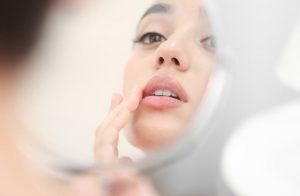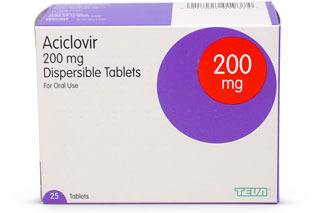 A cold sore is a painful blister that forms on or around your lip, or sometimes around your nose or eyes. It normally starts with a tingling sensation or itch, followed by painful blisters that may eventually break and ooze infectious liquid.
A cold sore is a painful blister that forms on or around your lip, or sometimes around your nose or eyes. It normally starts with a tingling sensation or itch, followed by painful blisters that may eventually break and ooze infectious liquid.
Though unpleasant, cold sores usually heal on their own within 7-10 days.
What causes cold sores?
Cold sores, or fever blisters, are usually caused by herpes simplex virus 1 (HSV 1), which is also called oral herpes to distinguish it from genital herpes, more often caused by herpes simplex virus 2 (HSV 2).
There may be no symptoms at all when you become infected with the herpes simplex virus, although if you do experience symptoms, they may resemble the flu – fever, muscle aches, and swollen glands. The lip blisters, however, may not appear at all at this stage – instead recurring sporadically much later – and, as discussed below, these recurrences especially take place when you are unwell, stressed, rundown, or on your period.
Cold sores are tightly bound to your immunity level
Up to 80% of the population is thought to be infected with herpes simplex virus type 1, yet the majority of us rarely or never show any symptoms at all.
Some of us, though, especially pregnant or breastfeeding mothers and newborn babies, may experience cold sores a few times a year, or even once or twice a month.
In adults, frequent herpes outbreaks indicate low immunity, which may be related to:
- Excessive stress
- Poor diet
- Problems with sleeping
- Hormonal imbalances
- Exposure to extreme weather (intense sun, cold wind, etc.)
In the case of babies, who may become infected from breastfeeding, the frequency of cold sore occurrences is normally due to their defences not yet being well established. Consult your paediatrician for the best course of action if your newborn suffers from a cold sore.
How to deal with a cold sore
A cold sore might not be dangerous but is a big nuisance for kids and adults alike. It itches, hurts, and looks unpleasant on the lip. Furthermore, once you’re infected, it’s not possible to fully eradicate herpes from your system – so the cold sores may continue to return throughout your life. But you can decrease the frequency and intensity of the outbreaks by using antiviral treatments, by boosting your natural defences, and by avoiding triggers. However in some cases cold sores come out without an obvious trigger.
Here’s our advice on speeding up the healing process and relieving the symptoms of cold sores:
 Buy antiviral aciclovir tablets or cream
Buy antiviral aciclovir tablets or cream
Antiviral aciclovir helps reduce both the severity and duration of your cold sore. By starting to apply the cream or starting the course of tablets early – as soon as you notice that familiar tingling sensation – you can effectively treat your cold sore. However, if you wait until a few days after the sore breaks out, the treatment is likely to be ineffective, and you’ll have to let the cold sore run its course.- If it’s serious, ask your doctor for oral antiviral drugs
In more serious infections, or when outbreaks of cold sores are especially frequent – such as may be the case with immunodepressed patients – a higher dose of aciclovir (400mg or 800mg) is required. These prolonged or high dose treatments are not available from Dr Fox, and in these circumstances, we advise that you consult a doctor in person. - Alleviate stress and boost your immunity
An excellent way to protect yourself against herpes is to boost your immunity by avoiding excessive stress, improving sleeping patterns, and eating healthily. - Avoid cold sore triggers
Cold sores are often triggered by changing weather conditions, especially sunburn (UV light exposure), and cold winds. Protect your lips and delicate skin on your face and around your eyes with creams, lip balms, and UV-sunscreens.
How to avoid infecting people with a cold sore
Herpes can be transmitted through bodily fluids but it’s not that contagious unless you are going through a cold sore outbreak. That’s when you should really be careful about infecting the people closest to you, so:
- Avoid sharing bathroom or kitchen utensils
- Don’t share lip balms or antiviral creams
- Don’t touch the cold sore unless to apply medication
- Wash your hands regularly, particularly before and after using antiviral creams
- Avoid kissing and oral sex
Cold sores aren’t fun, they can make you feel self-conscious, and can be very irritating. But by avoiding the classic triggers of tiredness, stress, and extreme weather, and by learning to react fast and treating your cold sore with antiviral aciclovir before breakouts occur, you can effectively limit how much they affect you.



